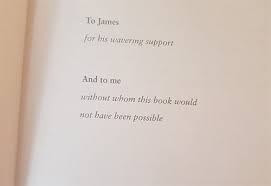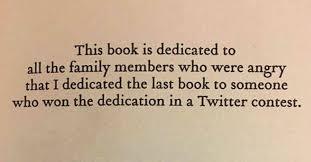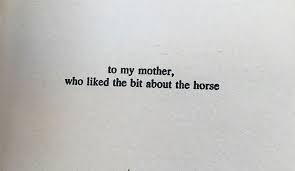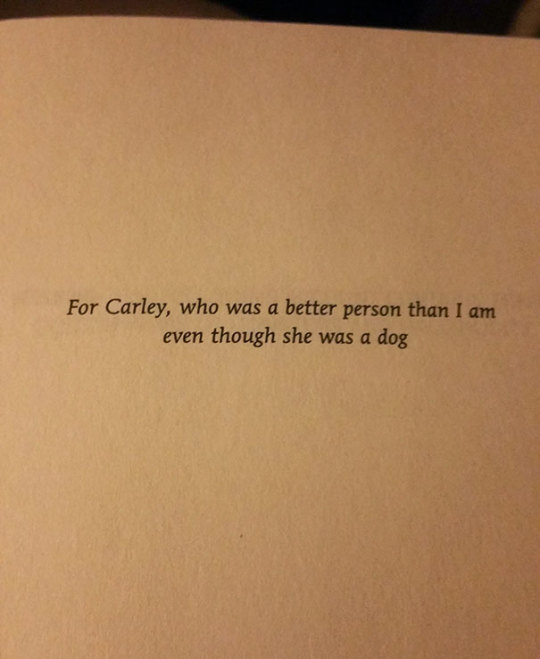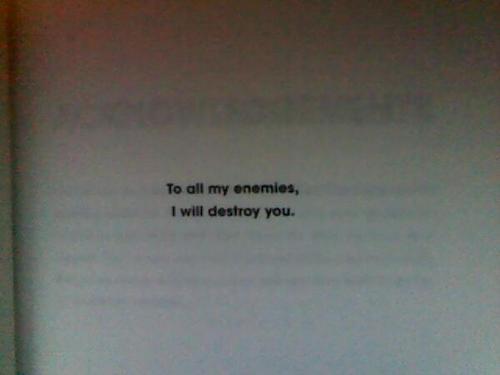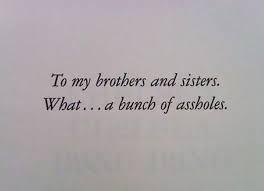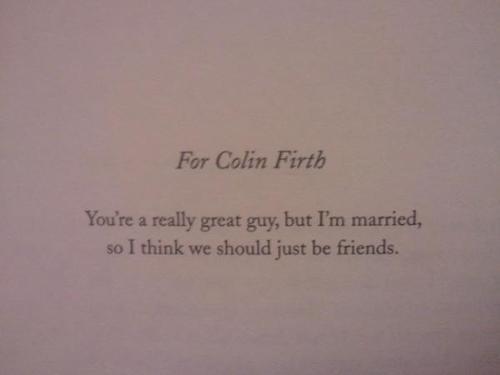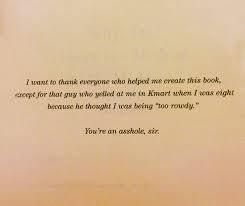Text
Genuinely I think one of the best things you can do to build characters in your story is give them a kink. You do not have to put that kink in the story. You do not have to tell anyone but yourself. But thinking about their wants and needs and what would bring them comfort or desire, about whether they crave power or crave a situation where they're blessedly free from any power, about which taboo they might kind of want to cross, is really useful for getting inside their head. Also "what situation would make my character stupid horny enough to make a terrible mistake?" is a good plotting device. "It's a plot hole that they made that dumb decision" no they were just whistling like a lustful kettle and forgot to turn their brain on.
41K notes
·
View notes
Text
I love me a pseudo-historical arranged marriage au but it always nudges my suspension of disbelief when the author has to dance around the implicit expectation that an arranged marriage should lead to children, which a cis gay couple can't provide.
I know for a lot of people that's irrelevant to what they want from an Arranged Marriage plot, but personally I like playing in the weird and uncomfortable implications.
So, I've been thinking about how you would justify an obviously barren marriage in That Kind of fantasy world, and I thought it'd be interesting if gay marriage in Ye Old Fantasy Land was a form of soft disinheritance/abdication.
Like, "Oh, God, I don't want to be in this position of power please just find me a boy to marry", or, "I know you should inherit after you father passes but as your stepmother/legal guardian I think it'd make more sense if my kids got everything, so maybe consider lesbianism?", or "Look, we both know neither of our families has enough money to support that many grandkids, so let's just pair some spares and save both our treasuries the trouble".
Obviously this brings in some very different dynamics that I know not everyone would be pinged by, but I just think it'd be neat.
43K notes
·
View notes
Text
Me: i hate clichés
the author: the character that I said was dead at the beginning of the book is actually the main character and the conspiracy theorists were right
me: holy CRAP no way holy CRAP the character that we thought was dead at the beginning of the book is actually a main character and the conspiracy theorists were right!!!
108 notes
·
View notes
Text
One of the most interesting things about the Hunger Games books is that despite Panem society being oppressive in literally any other regard, gender doesn’t really seem to… exist, per se.
Katniss spends the majority of the book engaging in male-coded activities, and she doesn’t really care much about her appearance, but this isn’t attributed to her being a “tomboy”. It’s a matter of social upbringing and personal preference.
On the other hand, Peeta spends the bulk of the trilogy engaging in female-coded activities such as baking, using disguises, emotionally manipulating the Capitol people, etc. Like Katniss’ case, this isn’t treated as an unusual thing. The gendered aspect of these activities is never brought up.
Even the love triangle wasn’t really about “tough guy Gale vs sensitive Peeta”. It was about Katniss choosing between the option that ties her to her old pre-Games life, and the option that drives her further into the Capitol’s games.
Same applies to Cinna. He’s a fashion designer but the gendered aspects of the profession are never brought up once in the series. Finnick, too, has shades of subversion of gender. Same goes for Johanna.
Capitol society in particular seems to not really gender-code their clothes much, aside from the basic “dresses are generally for girls”. Males and females dress in similarly extravagant clothing sharing the same color schemes.
Yet it’s all done so subtly that the reader barely notices the subversion of gender, precisely because it’s not brought up.
Either this says something about Collins specifically trying to write a book where gender didn’t factor as much in the story, or it’s a statement about Capitol society being more complex than it seems at first analysis.
11K notes
·
View notes
Text
Me: Hmm...I want to write something...
My abandoned WIP: *eagerly raises its hand*
Me:

12K notes
·
View notes
Text
Journalism 101 for writers: a writing guide to media
When I was a little girl, I asked my mother what college course I had to graduate in to be a writer. She said none, but that I had to do one either way. So, with no writing majors in the country, I chose journalism. I hated every second of it, but hey, I have a piece of paper that says I understand these matters. And today, I come to bestow upon you the knowledge I’m cursed with and to beg, to please, stop with the blaming the messenger in your pieces of media. Journalists are people too.
(Please, keep in mind media is drastically different depending on your country. This is how I learned it Brazil. Feel free to add one things you know about your country).
How to write a news article in your WIP?
This is what gets writers every time. We can see you struggling and it’s okay. We understand. People (like me) go to school to learn how to write news. But it’s really not hard. And believe me, it can help you in the rest of your writing too.
Key word in journalism is hierarchy. Hierarchy for the win.
We work on an inverted pyramid scheme. Don’t worry, I’m not about to ask you to join. It’s a writing technique. What is more important comes first in the inverted pyramid. What is more general, what is more important, what will the people want to know more must be in the first paragraph. This first paragraph is called the lead. In the lead, all (or most of the) W questions must be answered: what, where, when, who and why. Remember, in journalism there is no “spoiler”. The point of a journalistic article is to spoil, to give information.
When you’re done with the lead, you start on going to slightly more specific information and slightly less vital to the understanding of the article. Therefore, going forward down the inverted pyramid. Take a look at some articles and you’ll easily identify the structure. Simple, right?
But Bean! How will I know what is more important than the rest? I’m not trained in journalism! I don’t even like journalism!
Neither do I. But we journalists have a little… Cheat sheet. They’re called news values. News values are what we look for when organizing our articles and our overall pages. This wiki link has the whole list, of them, but it’s mostly things that impact people’s lives, that happen to notable people and/or things that are unusual. My professor used to say that a dog who bit a man was no news, but a man who bit a dog is. And if that man happens to be Benedict Cumberbatch, it would matter even more.
Of course, it also depend on the type of media that’s publishing! News for radio and online news portals have to be very imediate, while TV might take a day or two to deliver the same news.
What we chose is always really the most important news? No. But it helps to decide what people normally take as important when reading their news and therefore, put it into a hierarchy. Also, for your WIP consider what the news company values. That will make sense further on.
What is a journalist’s routine like?
Pure madness. But organized madness. Day-to-day goes a little bit like this.
Morning meetings (you’ve probably seen in movies) to decide what will be pursued during the day. Themes are suggested, but themes are not news. When you offer a theme, you must also offer someone who could be interested in talking to your company, how long you will take to do it and if you need someone else to go with you.
And there is not a lot of competition: if you suggest something and it gets picked up, you might not be the one to do it - because it’s not your specialty, because you have other assignments, because you don’t have the contacts. But that’s not a big deal. We’re not all egocentric maniacs. Mostly, we just want the paper to run or for the segment to air. Doesn’t matter whose name is up there. In your career, you’re going to do so many of these you won’t even care anymore. Besides, newsrooms don’t have that many people anymore. It’s not unusual for people to have to do two or more stories at once.
Some days are slow. There is not that many notable events happening everyday. That’s why we use “drawer” news. Things that are kept “just in case” nothing comes up. Stories that don’t get old, like a recurring club in the local library or a short human interest story. This is what newbies in fiction whine about. But relax, they’ll be stuck with it for a day. There will surely be more news tomorrow. It’s not a big deal.
After the morning meeting, everyone goes out their desks to make calls or into the city. Like I said, newsrooms don’t have a lot of people and a lot of roles were suppressed.
In online and printing, nowadays, the journalist goes on their own, makes the interviews, take the pictures, comes back into the room, writes and publishes it on the website, or sends to the editor for printing. In TV, journalist and cameraman take a regular car (unless they’re doing a live insertion on the news segment) drive themselves, collect interviews, extra footage, write a script for the editors, go back, record the off voices and take it to the editing room.
And deadlines are very real. If you don’t meet the deadline, something will have to go on the air/ on the paper. Feel the pressure yet?
What about investigative journalists? Like in Spotlight! Ah. That’s not a thing. I mean, it is. But only in specialized companies focused on investigative journalism. Nowadays, news companies don’t have the money to keep recurring investigative teams. It costs a lot of money: pay salaries, pay for their moving around to do interviews… And it can take several months to investigate something that will get published in a week (or get stumped and not get published at all).
That doesn’t mean they’ll never get investigative pieces. But normally journalists will investigate on their own (paying for their own travelling costs, etc) and the company will only get involved when it’s time to publish it. That is, if it’s not against their own interest. Which takes us to the next segment.
Are journalists life-sucking, money seeking unresponsible pricks?
No. They get bad reps, but they’re merely the messenger to both good and bad news. Most times, they hardly have control over the things they have to write/produce. They’re overworking, underpaid, and the clock is ticking. Something has to go up, something has to be printed.
I’ve seen this time and time again in entertainment. Normally it takes the figure of the editor-in-chief. They’re not bad people. They’re demanding, hell yes. A nightmare to their journalists? Sometimes. But that’s their job. If they don’t have a strong hand, the paper won’t go out, the segment won’t air. That doesn’t make them bad people and they’re hardly as bad as you see out there in media (well, mine was, but I’m sure he’s just an odd case).
Why do we get a bad rep? Well, allow me to introduce the real bad guys of the story. Company owners.
Doesn’t matter who they are. Millionaires. Corporations. Politicians. They always manage to stall the advancing of news as they’re supposed to be. There’s no fighting them, they’re the ones that pay. Their relations and their interests dictate what goes in the news. This is called Agenda Setting. Look it up.
Sometimes editor-in-chief will try and discuss these matters, but their power only go so far. In my city, we had a scandal involving the school I went to. The biggest newspaper of the city set on investigating, had the whole thing ready to go. Editor-in-chief was giving full support. They were forbidden to publish. Why? In comes the other villain of journalistic tales.
Advertisers. The school had a two page ad in a coveted spot at the middle of the newspaper. As much as people claim journalism is important, it can’t sustain itself. It has always depended on advertisement. So when big advertisers complain to the owners, the company loses money. And in the end, that’s the objective of a company. Making money. Make no mistake. We are all aware of how journalism is vital to society, but everyone wants to eat and pay rent at the end of the month.
Of course, there are independent newspapers, some really awesome people who dedicate their lives to producing quality journalism independently. Are they successfully? Not normally. But they’re out there! So don’t think everything is always hopeles and your adorable OC will have to sell their soul to this terrible state of journalistic indecency.
I hope this helped you if you use news pieces in your WIPs or if you have journalist characters! If you want to know anything else, I’d be happy to answer any questions (or even write more on the subject). If you like the guide and would like more writing advice, you can follow me or check my tag HERE.
Thanks for reading <3
16 notes
·
View notes
Text
[Antoni Porowski voice] A writer’s relationship with punctuation is something that can actually be so personal.
237 notes
·
View notes
Text
it’s all “accidental hand touch” this and “brief longing gaze” that, where’s my support at for “reaching up and fixing someone’s collar for them” crew??
the intimacy disguised as helpfulness! the lingering contact! the optional subdued “you look nice” as they stand too close!!
expand your pining vocabulary people
156K notes
·
View notes
Text
me: *creates a character* you’re my new character!! you are my son, my beautiful cinnamon roll! I love you!
character: awww, thanks! I’m so excited to get started on this story!
me: me too!
character: yeah!
me: yeah!
me:
character:
me: time to hurt you
character: wait what
2K notes
·
View notes
Text
you ever have an amazing idea for your story that’s absolutely wild and unexpected and completely throws you off your outline but you use it anyway

14K notes
·
View notes
Text
11 tag game
Thanks to @nadiarexler for tagging me in this (I already did this one time I think but with different questions so I’ll just do this again). Also, I’ll post this to my writeblr, ‘cause @stormborn0110 is just my messy main. :)
1. Do you create playlists for your stories or characters?
Yes, I have quite a bunch of unorganised character and story playlists on spotify. And well, some have only one or two songs in them, and then I have almost the same playlists on my phone depending on what songs I have saved there. Overall, it’s a mess really.
2. What is your stance on endings that don’t end with some hope?
I think every ending has to fit the general tone and theme of the story, so if the story concept is one where there’s no place for hope in the end, then I don’t have anything against it. And if it fits the story the readers also won’t be unpleasantly surprised by a hopeless ending. Personally, I love bittersweet, greyish endings.
3. What author would you love to hear feedback from on your WIP?
Honestly, I don’t have anyone specific in mind right now.
4. What is the genre of your WIP(s)?
Ophelia, Gilded Glass and Goddess are all different kinds of Fantasy, Cinder is kinda like a sci-fi/dystopian mash-up. Except for Goddess (which is NA), they are all YA.
5. How do you come up with new ideas for your WIP(s)?
I wish I had a specific method, but they just come to me or well, they don’t. Sometimes I’m waiting literal years for an idea for something I haven’t figured out yet. It’s one of my big problems in life (I’ll have the same going on with papers for uni, but there I have a deadline so... ugh, it’s even worse)
6. What do you use to keep all your writing on? (Scrivener, Google Docs, good old pen and paper…)
I’ll repeat, I’m a mess. I have yWriter and Open Office and a cute notebook and then I started using Google Docs again recently and ... There’s no system and there’s no consistency. Help!
7. What gave you initial inspiration for your WIP(s)?
I can’t really reconstruct that. And first I’d have to specify at what point some ideas have become those wips. Because for me ideas usually evolve quite a lot and become something completely different over time. You wouldn’t believe it now, but both Ophelia and Goddess “branched of” from the same concept.
8. How long have you been working on your WIP(s)?
Except for Gilded Glass which I only had the idea for a few months ago all my other wips are from spring 2018, but Ophelia had already existed in some other shape before that. You have to keep in mind though that I’m a really slow writer and uni and mental health take up a lot of time that I thus can’t use to write
9. What was the first thing you came up with for your WIP(s)?
For Ophelia it was the characters, some of the main ones are actually quite old and inspired by characters I roleplayed as a teen. For Cinder it was a setting/plot-mix, for Goddess it also was like a setting thingy and Gilded Glass was something plot-related.
10. Have you considered Hogwarts houses for your characters? If so, what are they?
Always! Sometimes it’s a way for me to get to know them better and sometimes I have to already know them well to figure out their house, but in the end it’s always really helpful to me (and also I’m a huuuge hp fan). I not only use the conventional house system from the books but the sortinghatschats-system, too. It helps you a lot when it comes to the moral system of the characters and how they approach problems and obstacles.
11. What do you find easiest to write? (Description, dialogue, etc.)
When I was younger it was certainly description that came the easiest to me, but then I took a long break from writing and now it’s dialogue. My descriptions and prose in general are kinda shitty right now (going to take a lot of work) and I wish I could write like my twelve-year-old me again (no joke).
Tagging: @typewrxter @lilywrites01 @paracomas @dangerouslyspicynacho and @arte-muse
0 notes
Text
Thanks to @nadiarexler for tagging me and sorry for taking so awefully long to reply :D
"I presume this is a Spy Kids reference and not an actual description of what happened."
This is from my WIP Ophelia, first book in the Otherworld series
I’m tagging @snowdropwrites @shamelesslypoetic @neverendinglegend @beanenigma @heavenlybursts @honiewrites @shewritesthingx @musicofglassandwords @anna--writes @persephonesama @eabhawrites @cookiecuttercritter @inkwellprincess @everynextdream @writerfae @lmorasey
Tag Game: Post the last line you wrote and tag as many people as there are words.
I was tagged by @aboutthatmelancholystorm thank you so much!!!!!
Here’s the last line of a Modern!AU Snafu that I’m writing as a prompt request fill:
So anyway he sends me a text asking me to pick up and I quote ‘A shit ton of booze’ on my way home from work.
I’ll tag some of you that I know write or even occasionally write.
You don’t have to participate if you don’t want to but this is kind of fun!
I’m tagging: @xmxisxforxmaybe @ramibaby @itsme690 @rami-malek-trash @r-ahh-mi @perfect-rami @mrbenhardys @ramimalekpeen @gingerwerk @justice-for-shayla @persipneiwrites
674 notes
·
View notes

